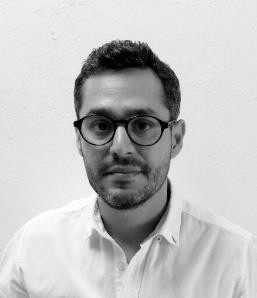Monitoring without Control? Citizen Oversight Committees in Colombia and Ecuador
In Spanish, the term veeduría comes from the verb to see or observe, which is why in some regions of Latin America it is associated with organized citizen monitoring of the public sector. Doing veeduría is a form of citizen oversight, although in countries such as Argentina, Bolivia, Colombia, Chile, Honduras, Guatemala, Ecuador, or Panama, citizen monitoring activities are usually described with the term control social, similar to the term social accountability in English.
Citizen oversight committees (veedurías ciudadanas) are one of the main institutions of social accountability in Latin America, but they take very different forms in different countries. For example, in the Dominican Republic they are created at the government’s invitation of the executive, while in Peru and Paraguay they are not regulated. In Colombia and Ecuador, citizen oversight is a right of participation open to all citizens (with exceptions for party leaders or elected officials), with a regulatory framework that empowers them with a broad capacity to monitor different processes and actors involved in public sector management. In these two countries, citizen oversight committees are registered with the state; their members usually participate in training activities; they specify their work objectives; they exchange information with authorities, public officials, and other actors; they analyze findings and draw conclusions. They also do evaluations, make suggestions, and file complaints; and they may follow up.
Citizen oversight committees in Colombia
In Colombia, the term appeared in 1989 within the framework of the National Rehabilitation Plan, a government initiative that sought the economic, social, and political integration of the poorest communities and strata of society, located in areas with a weak presence of the state. This program created the Popular Oversight Committees as a multistakeholder control mechanism (with the participation of beneficiaries of the policies, local authorities, and representatives of sectors such as the church and political parties). After the 1991 Constitution, citizen oversight rights were extended to the sectors of health, education, environment, culture, public services, and government contracting, among others. The 1994 Participation Law recognized the right of citizens to form citizen oversight committees and in 2003 they were regulated by Law 850, although by then dozens of oversight groups were already registered in different parts of the country. This shows that the popular uptake of the idea was ahead of the regulatory framework.
After the approval of Law 850, regulatory advances have emerged in Colombia that have given citizens in general the same rights that Law 850 grants to citizen oversight committees. However, this modality of social oversight continues to be the most familiar to citizens. This is because, according to the Veeduría Tumaco Despierta, by being officially recognized, they are considered “a valid interlocutor that must be listened to” (for more information on the experience of Tumaco Despierta and on the opportunities and challenges of citizen oversight see: “El control social en Colombia: un balance sobre las veedurías ciudadanas”).
According to official data from the Business and Social Registry (RUES), as of March 2022, 7,424 citizen oversight committees have been registered—although not all are necessarily still active or in operation. However, this figure is likely to be underreporting, since not all formally registered citizen oversight offices are notified and entered into the information system. Although there is a perception that these oversight activities are limited to supervising local public works, they also monitor sectors such as health (mainly service and care provision), as well as the environmental sector, particularly on issues related to environmental licensing and changes in land use.
Citizen oversight committees in Ecuador
In Ecuador, the veeduría as a form of citizen oversight appeared in 2001 as a result of a process of institutional diffusion that was informed by the Colombian experience. They were first implemented as a corruption prevention policy through the Civic Commission for the Control of Corruption. After the constitutional process of 2008 they became a right, later detailed in the Organic Law of Citizen Participation of 2010, and regulated by the Council of Citizen Participation and Social Control (CPCCS).
As in Colombia, the citizen oversight committees must request registration and formalization with the CPCCS. According to CPCCS regulations, those who participate in an oversight must receive training, validate a work schedule, and submit a final report. For its part, the CPCCS is obliged to attend to the conclusions of the oversight, publicize them, and if applicable, initiate investigation processes and issue recommendations to other authorities.
From 2001 to 2019 there are records of just over a thousand citizen oversight committees throughout the country, although sometimes they are administratively inconclusive exercises. At the national level, this participation mechanism has been the subject of debate. Nevertheless, oversight activities have been spread over different areas of responsibility of local governments, with a steady increase between 2012 and 2016, although subsequently the indicators have been unstable, in correlation with episodes of conflict in the government agency in charge of promoting them.
The consequences of oversight committees
Although the citizen oversight committees are usually framed within the concept of social accountability, there is little clarity about their ability to activate accountability processes. By way of illustration, we have found that, although some people associate citizen oversight committees with control and often complain about the lack of capacity to achieve their objectives, they are also aware that follow-up requires capacities and authority that exceed those of a citizen oversight committee. Likewise, it is necessary to investigate the capacity of these activities to influence public decisions, since there are not enough studies that show how they truly contribute to improving public sector management.
It is for these reasons that it is important to carry out research that contributes to identifying the real impact that these exercises have, and the conditions in which they are framed. This includes their contribution to the prevention of corruption. It is key to identify the factors that lead to the citizen oversight committees being able to contain, prevent, or dissuade acts of corruption and improve state efficiency in the design and implementation of public policies.
Versión en español: ¿Vigilancia sin control? Las veedurías ciudadanas en Colombia y Ecuador



